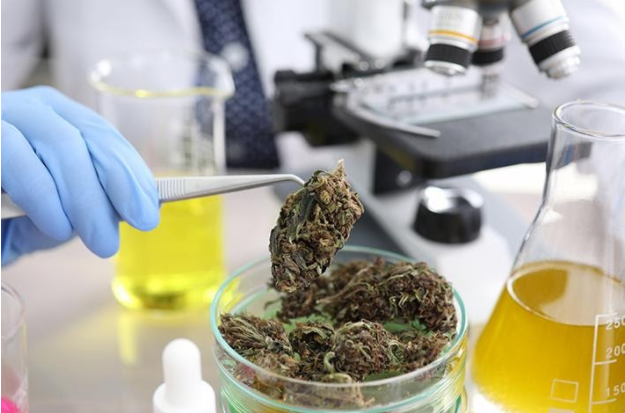|
A proposed ASTM International standard will describe recommended practices for analytical laboratories in the cannabis industry. ASTM’s cannabis committee (D37) is developing the proposed standard (WK63913). ASTM International member Cary Black notes that the chemistry of products containing cannabis is subject to increasing oversight by regulatory and legal entities. Consumer safety is a critical factor because many of these products are consumed by humans or animals. Standardization across the cannabis industry is critical to the success of the industry. “Whether being used for certificates of analyses, quality control, control studies, or research and development applications, it is imperative that the laboratories conducting these analyses are standardized in their operations as much as possible,” says Black, Principal Consultant and CEO of CK Black Group Inc. “As an agricultural crop with chemical constituents that produce a myriad of physiological effects, the variability and consistency of these constituents and others are of paramount importance to protect consumer safety.” According to Black, “a best-practice oriented guide will optimize standard practices, heighten the quality of the data, and preserve confidence in their processes and better detect anomalies or deficiencies that may affect final product quality.” ASTM welcomes participation in the development of its standards. Become a member at www.astm.org/JOIN. Corrective and Preventive Actions (CAPA) in the Cannabis Industry"A well-defined CAPA program defines, resolves, and prevents recurrence of quality issues, but it also has a well-established means of detecting and preventing potential quality issues," says Kathleen May, MP Consulting. Cannabis QualityA new ASTM International standard aims to support quality in the cannabis industry through what is known as the corrective action/preventive action (CAPA) concept. The new standard (D8229) was developed by the organization’s cannabis committee (D37).
According to ASTM International member Kathleen May of MP Consulting LLC, CAPA focuses on preventing quality issues as well as identifying, investigating, and correcting issues that have already occurred. She says that organizations can use CAPA to help comply with regulatory requirements, to reduce work and waste, to avoid lost revenue, to reduce customer complaints, and to help ensure consumer safety. "Regulatory agencies gauge quality and compliance through an organization’s management and resolution of quality issues," says May. "A well-defined CAPA program defines, resolves, and prevents recurrence of quality issues, but it also has a well-established means of detecting and preventing potential quality issues." The new standard aims to help organizations develop internal CAPA processes based on the type of operation they are running. "For example, a laboratory will have to develop an out of specification procedure to address testing failures and aberrant data trends," May says. "And an indoor cultivation facility would develop a procedure on how to address environmental samples that are over the defined acceptance limit." TO GET INVOLVED Robert Morgan tel +1.610.832.9732 [email protected]
0 Comments
Leave a Reply. |
Cary BlackMr. Black is an accomplished and results-driven analytical chemist, ASQ certified quality engineer (CQE), QMS Auditor, Preventive Control Qualified Individual (PCQI), and GMP consultant with multiple skill sets. Categories |




 RSS Feed
RSS Feed